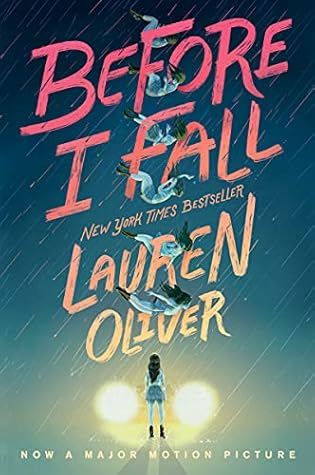More on this book
Community
Kindle Notes & Highlights
I love her, I love the ugly mustard yellow bricks of Thomas Jefferson and the magenta-tinted halls. I love Ridgeview for being small and boring, and I love everyone and everything in it. I love my life. I want my life.
This amused me, since my 16 year old attends a school with yellow tiles on the wall, but my 21 year old had such a negative reaction to the yellow bricks in 8th grade that she decided to attend a different high school for the atmosphere, and she had to audition for the performing arts program to get the variance.
As I head up from the gym it strikes me how strange people are. You can see them every day—you can think you know them—and then you find out you hardly know them at all.
Does anyone think they actually know anyone beyond their own need to classify and box people up in or to organize things in their minds?
What I really wanted to say was, Where were you four days ago? Where were you when my car was spinning off the edge of a road in the middle of the night? Why weren’t you thinking of me? Why weren’t you there? I hate both of my parents right now: for sitting quietly in our house, while out in the darkness my heart was beating away all of the seconds of my life, ticking them off one by one until my time was up; for letting the thread between us stretch so far and so thin that the moment it was severed for good they didn’t even feel it.
Maybe this is a normal reaction, and maybe I agree. Did her parents not know about her cheating, skipping class, drinking and other misdeeds? But, honestly, why is she blaming her parents instead of her reckless friend?
Lunch is prime bathroom traffic time—everyone needs to reapply lip gloss, complain about feeling fat, threaten to upchuck in one of the stalls—and the last thing I need right now is a steady stream of stupid.
People do this stuff in public? They are so worried about perception, but then they show weaknesses, like the need to apply make-up and complain about their bodies in front of people? I asked my daughter if she ever used lipgloss in high school, and she said that was more of a 2010 thing. But this book was published in 2010, so that makes sense.
I toss my hair over one shoulder, trying to look nonchalant. The last thing I need is for the Pugs to know I’ve been ditched. “I had to tell Lindsay something.” I gesture vaguely in the direction of Senior Alley. “She and the girls had to jet out without me—some community-service thing they do once a month. Lame.”
I don’t remember what we were talking about, but all of a sudden Lindsay blurted out, “I had sex.” Just like that. We all stared at her in silence, and she leaned forward and told us in a breathless rush how she’d been drunk and how because her stepbrother wasn’t ready to leave the party the guy—the Unmentionable—offered to walk her back to the dorm where she was staying with her stepbrother. They’d had sex on her stepbrother’s twin long bed with Lindsay fading in and out, and the guy—the Unmentionable—was gone even before Lindsay’s brother got back from the party.
I know we haven’t always been nice to you or whatever. And I really feel bad about it—I do.” I try to gauge what she’s thinking, but it’s like something has shut down behind her eyes, a button switching off, and she just stands there staring at me dully. I rush on, “The thing is, we never really meant anything by it, you know? I don’t think I—we—really thought about it. It’s just the kind of thing that happens. People used to make fun of me all the time.”
This is the line that opens the floodgates where you find out just how poorly Juliet was treated by the 4 friends. Their treatment of her actually meets the criteria for bullying, being sustained over time, involving a power imbalance and hostile intent. However, Lindsay seems confused herself, not knowing why it kept going on, saying she thought she would just have stood up for herself, while Juliet said she thought it would just blow over.
I get that passivity in the face of mob mentality leads to contempt, but it's supposedly high school, and to sustain that level of hatred over time suggests Lindsay had some serious mental health issues.
And I think of all the times I sat in squirming silence, terrified I would say or do the wrong thing, terrified the dorky, lanky, horseback-riding loser inside me would rise up and swallow the new me, like a snake feasting on something.
This explains a lot, except why she really changed. It's normal for interest in hobbies and pastimes to wane; normally we hang onto things longer than we need to. But she deliberately stopped doing these things because she wanted to be friends with one particular person. It almost defies logic.


